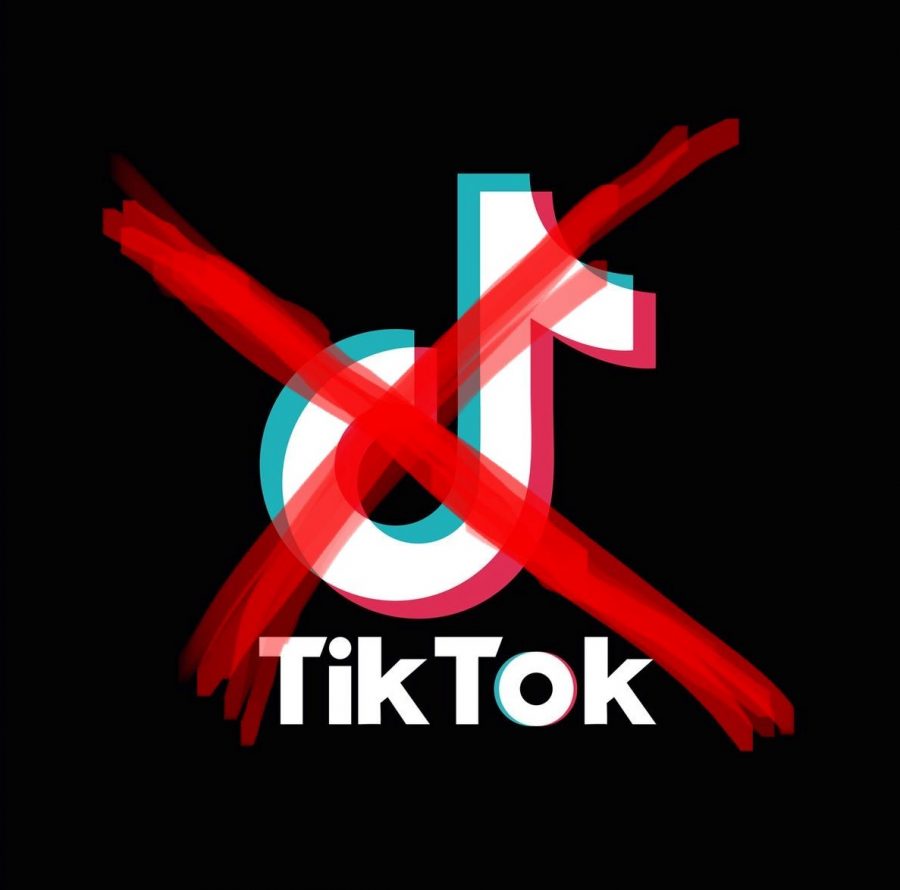Point/Counterpoint: TikTok Should Be Banned for American Audiences
The Chinese Social Media Sharing App Should Be Taken Off the Appstore
September 20, 2020
TikTok, a platform based on short-form videos and the injections of personality that its 500 million person user base provides, is facing a ban from US virtual markets. The intricacies of this ban, at least on the more pragmatic side of the event are too vast to explore, but the principles shown both by US government officials and the corporate entities involved are nothing short of inquiry-demanding.
The TikTok controversy is based on the fact that, as a Chinese holding, Bytedance, the platform’s parent company, was subject to Chinese information and data privacy laws. Article 28 of a Chinese data privacy law passed in 2017 reads “network operators shall provide technical support and assistance to Chinese police departments and national security agencies for their legal criminal investigations.” A brief contextualization of this policy reveals that essentially, tech companies are to disclose information on their users if those users seem to be acting in violation of national law; not American or International law, but Chinese law. Article 102 of the Chinese Criminal Code dictates that any person, inside or outside of China, who acts in a way that damages the integrity, security, or in a manner that may damage Chinese sovereignty is to be punished with 10 years in prison at minimum; for reference, the 2002 video game Hearts of Iron was banned in China, as it reportedly acted to damage their national sovereignty in depicting Japan as the ruler of Taiwan in a WWII scenario.
Chinese legal code and, by extension, foreign policy, is not one compatible with the free market or the American principles of popular sovereignty or individual liberty. Furthermore, the ban placed on TikTok and other Chinese-operated social media platforms is not an act of competition nor war, but rather a defense of freedom and liberty, as well as an attack on Chinese totalitarianism and state terrorism.
Bytedance, as well as any other China-based platform in fact demands a shutdown, on the basis of the Magnitsky Act. In 2012, Sergei Magnitsky died after being denied life-saving medical care in a Russian prison. Deeming the event a violation of human rights, the Magnitsky Act, signed by former President Barack Obama effectively set a precedent that any group found committing violations of human rights was to be sanctioned, having their assets frozen and being banned from entering the US. The Magnitsky Act makes clear that Bytedance, a holding of the very Chinese State that has established concentration camps for Muslim populations as well as executed civilian protestors en masse, not only should be shut down, but must be shut down.
In summary, it is more than just beneficial to impose a ban on Chinese companies that collect user data, such as Tiktok; it is, first and foremost, our responsibility as a member of the free world and a defender of the unjustly persecuted, to deny Chinese corporations the right to feed off of American citizens for profit to fund a totalitarian regime.




